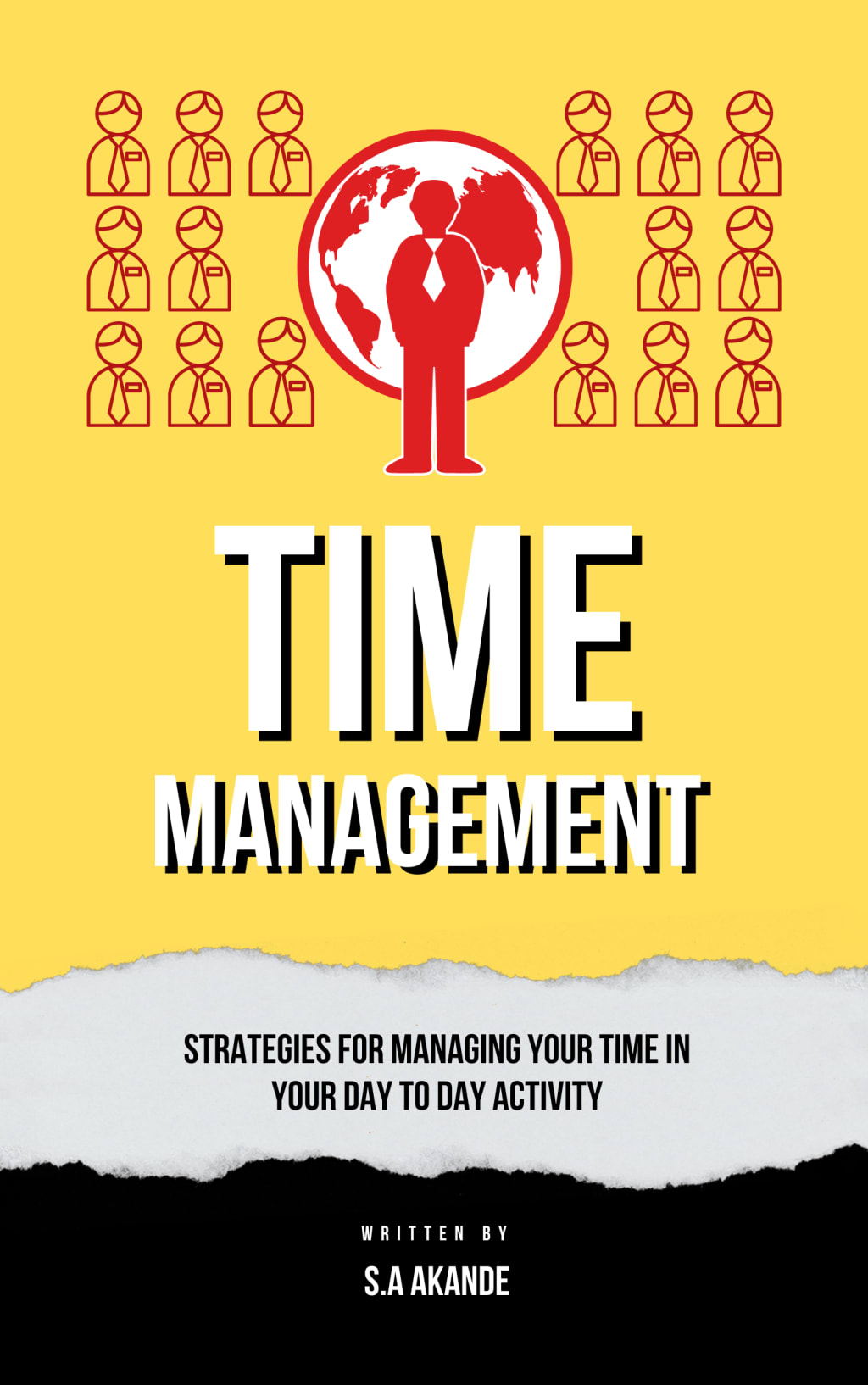Time Management
How to effectively manage your time in your day to day activity

Time management is a crucial skill in today's fast-paced world. With so many tasks to complete and deadlines to meet, it is essential to manage time effectively to achieve success in personal and professional life. Time management is the process of organizing and planning how much time you allocate to specific activities to maximize productivity. Successful time management enables individuals to complete their work efficiently, reduce stress, and gain a sense of control over their life. In this essay, I will discuss the importance of time management, the benefits of effective time management, and strategies for effective time management.
Effective time management is essential for personal and professional success. It helps individuals plan their day, week, month, or year strategically, allowing them to focus on critical tasks and meet their objectives effectively. People who manage their time well are less likely to procrastinate, and they can allocate enough time to activities that are meaningful and align with their goals. Time management also enables individuals to balance their work and personal life, reducing stress and increasing their quality of life.
The benefits of effective time management are abundant.
1. First, it enables individuals to increase productivity, leading to better performance, better job satisfaction, and higher chances of achieving professional success. When people understand how they spend their time, they can eliminate time-wasting activities and focus on the work that matters most. Effective time management can also lead to better time estimation, helping individuals to plan their work and avoid underestimating how much time they need to complete tasks.
2. Second, effective time management reduces stress and anxiety. People who use their time effectively are less likely to feel overwhelmed by the demands of work and personal life. By planning their day in advance, they can focus on essential activities while ensuring they have time for personal activities, such as exercise, family, or hobbies. Managing time effectively also means avoiding the need to multitask, which can cause stress and reduce productivity.
3. Third, effective time management leads to better decision-making. When individuals use their time effectively, they can identify their priorities and focus on activities that matter most. This helps them make better decisions about how to spend their time and identify opportunities worth pursuing. Effective time management can also reduce the risk of burnout, leading to more rational and informed decisions.
To manage time effectively, people should use a variety of strategies.
* The first strategy is to plan and prioritize. Planning involves creating a to-do list for the day, week, or month, depending on the scope of the tasks. Prioritizing involves identifying the critical tasks, such as deadlines or high-priority work, and allocating enough time to complete them. It is essential to break down large projects into manageable tasks and prioritize them in a way that makes sense, such as starting with the most difficult assignments.
* The second strategy is to eliminate time-wasting activities. Many people waste time on social media, watching TV, or surfing the internet instead of focusing on their work. Eliminating these distractions can help individuals save time and improve productivity. They can set limits on the time spent on social media, schedule regular breaks throughout the day, or use tools like website blockers to stay focused.
* The third strategy is to learn to say no. People who manage their time effectively are good at setting boundaries and saying no to tasks or activities that don't add value. They understand that their time is precious and that they should use it wisely to achieve their goals. Learning to say no can be challenging, particularly if it involves saying no to a boss or colleague. However, it is essential to prioritize activities that matter and not let others dictate how individuals spend their time.
* The fourth strategy is to delegate tasks. Effective time management requires individuals to recognize their strengths and weaknesses and allocate tasks accordingly. Delegating tasks to others can help individuals save time, reduce stress, and enable others to develop skills. Delegation does not mean shirking responsibilities; it means understanding how to use resources effectively.
* The fifth strategy is to use tools and technology. There are numerous time management tools available, such as calendars, apps, and software that can help individuals plan and organize their day. These tools can help remind individuals of upcoming deadlines, prioritize tasks, and allocate time more effectively. Technology can also help to automate tasks, such as emails or data entry, freeing up time for more critical work.
* Finally, it is essential to incorporate self-care activities into the daily routine. Self-care activities, such as exercise, meditation, or spending time with loved ones, can help individuals reduce stress, relax, and maintain focus. It is essential to schedule in time for self-care as part of a productive and healthy lifestyle.
In conclusion, effective time management is essential for personal and professional success. The benefits of effective time management include increased productivity, reduced stress, and better decision-making. Strategies for managing time effectively include planning and prioritizing, eliminating time-wasting activities, learning to say no, delegating tasks, using tools and technology, and incorporating self-care activities into the daily routine. By developing these skills and strategies, individuals can maximize their time and achieve their goals while maintaining a balanced and meaningful life.





Comments (1)
The formula 80/20 should be applied in time management strategy. 20%effort to 80%results